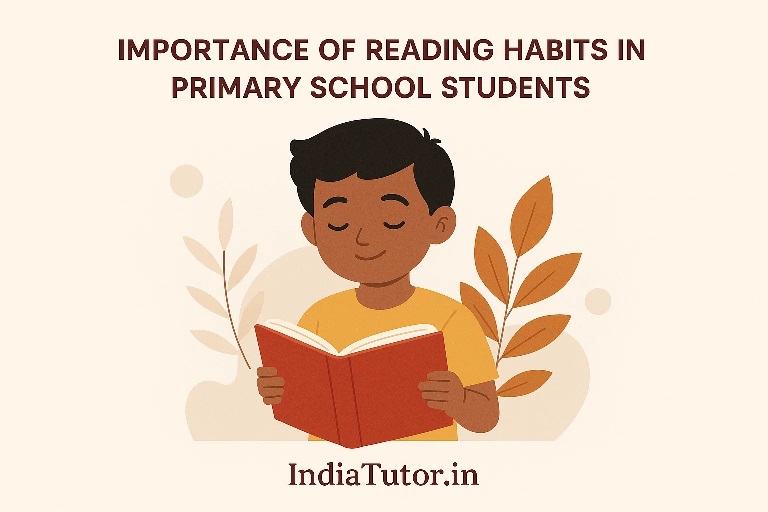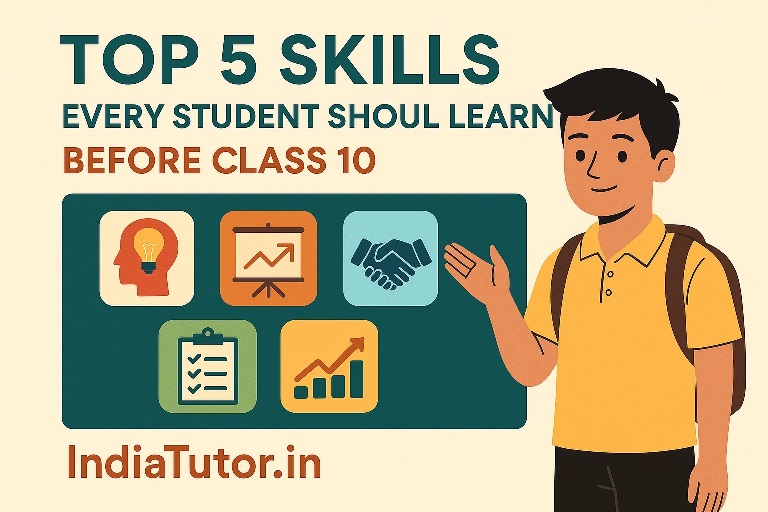Preparing for competitive exams in India has always been intense. Whether it is JEE, NEET, or prestigious Olympiads, students face high pressure, vast syllabi, and tough competition. In this fast-changing academic environment, Artificial Intelligence is emerging as a powerful support system. AI is not replacing teachers; instead, it is helping students and tutors prepare smarter, faster, and more efficiently.
For platforms like IndiaTutor.in, where online tutors guide students across India and abroad, AI offers an opportunity to transform preparation strategies and improve results.
Why Competitive Exams Need Smarter Preparation
Exams like JEE and NEET are not just about hard work; they are about smart work. Students must manage time, revise effectively, analyze mistakes, and stay consistent for months or even years. Olympiads demand even deeper conceptual clarity and problem-solving skills.
Traditional preparation methods often follow a one-size-fits-all model. Every student receives the same assignments, same pace, and same revision schedule. But every learner is different. Some struggle with Physics numericals, others with Organic Chemistry reactions, and some with time management in mock tests.
This is where AI-powered tools and strategies can make a real difference.
Personalized Learning Paths with AI
One of the biggest advantages of AI in competitive exam preparation is personalization. AI tools can analyze a student’s performance across topics, chapters, and mock tests. Based on this analysis, they can recommend:
More practice questions in weak areas
Revision schedules based on retention levels
Difficulty level adjustments for better progression
Topic-wise performance tracking
For example, if a student consistently makes mistakes in Mechanics while preparing for JEE, AI systems can identify patterns and suggest targeted practice sets. This reduces random studying and increases focused effort.
For online tutors on IndiaTutor.in, this means they can offer customized guidance instead of generic lesson plans. Tutors can use AI-generated insights to understand where the student is losing marks and adjust their teaching strategy accordingly.
Intelligent Mock Tests and Real-Time Analysis
Mock tests are crucial for exams like JEE and NEET. However, simply attempting tests is not enough. What truly improves scores is deep analysis.
AI-powered platforms provide instant performance breakdowns:
Time spent per question
Accuracy by topic
Comparison with previous attempts
Strength and weakness mapping
Predicted score range
Instead of waiting days for evaluation, students get immediate feedback. Tutors can review detailed analytics before the next class and focus directly on problem areas.
For Olympiad aspirants, where questions test higher-order thinking, AI can analyze solution approaches and highlight logical gaps. This helps students improve reasoning, not just memorization.
Adaptive Practice and Question Banks
Competitive exams require massive practice. But solving thousands of random questions can be exhausting and inefficient.
AI-driven adaptive learning systems adjust the difficulty level based on the student’s performance. If a student answers correctly, the system increases complexity. If errors increase, it reduces difficulty and revisits fundamentals.
This keeps students in the ideal learning zone, where questions are neither too easy nor too overwhelming.
For tutors, this is extremely useful. Instead of manually curating endless worksheets, they can use AI-backed question banks that align with exam patterns and current trends. This saves time and improves the quality of assignments.
Better Revision Through Spaced Repetition
One major challenge in JEE and NEET preparation is forgetting previously studied concepts. Students often feel confident after completing a chapter, only to struggle during revision months later.
AI tools use spaced repetition algorithms to schedule revision at optimal intervals. Topics that a student is likely to forget are automatically brought back for review.
This systematic revision improves long-term retention, especially for subjects like Biology for NEET and Inorganic Chemistry for JEE.
Online tutors can integrate this approach into their teaching plans, ensuring that no important topic is left behind.
AI-Powered Doubt Solving and Instant Support
Students preparing for competitive exams often face small doubts that, if unresolved, can create conceptual gaps.
AI chatbots and doubt-solving systems can provide instant explanations for common questions. While they cannot replace a teacher’s deep guidance, they can help students clear basic doubts between classes.
This keeps learning momentum strong.
For IndiaTutor.in tutors, AI can act as a support tool rather than a competitor. Tutors can encourage students to note down AI responses and discuss them in class, refining understanding and correcting any misconceptions.
Data-Driven Goal Setting
Competitive exams are long journeys. Students need measurable goals to stay motivated.
AI systems can help in setting realistic targets:
Weekly question targets
Mock score improvement goals
Time management benchmarks
Topic completion deadlines
By tracking progress through dashboards, students can see improvement visually. This boosts confidence and reduces anxiety.
Tutors can use these dashboards during online sessions to show growth and plan the next phase of preparation strategically.
Ethical Use of AI in Exam Preparation
While AI offers immense benefits, responsible usage is important. Students should not rely on AI to shortcut learning or generate ready-made solutions without understanding them.
Tutors play a critical role in guiding students on how to use AI tools correctly:
Use AI for practice and analysis, not cheating
Focus on understanding concepts, not copying solutions
Verify AI explanations with trusted academic sources
The goal is to enhance thinking skills, not replace them.
How Online Tutors Can Leverage AI for Better Results
For tutors on IndiaTutor.in, AI can improve teaching quality and student outcomes in multiple ways:
Creating personalized study plans
Analyzing mock test performance before sessions
Designing targeted revision strategies
Tracking long-term progress
Improving student engagement through interactive tools
By combining human expertise with AI-driven insights, tutors can offer premium academic support that stands out in a competitive online tutoring market.
Students preparing for JEE, NEET, and Olympiads need clarity, discipline, and smart strategies. AI provides the analytical power, but it is the tutor who provides mentorship, motivation, and deep conceptual understanding.
The Future of AI in Competitive Exam Preparation
AI in education is still evolving. In the coming years, we can expect more advanced features such as predictive performance modeling, customized Olympiad-level problem generation, and even emotion-based learning analytics.
However, one thing will remain constant: students succeed when technology and human guidance work together.
For IndiaTutor.in, integrating AI-friendly strategies into tutoring practices can create a strong value proposition for both Indian and NRI families seeking high-quality academic support.
Smarter preparation is no longer optional in competitive exams. It is essential. With the right blend of AI tools and expert online tutors, students can approach JEE, NEET, and Olympiads with confidence, clarity, and a clear roadmap to success.










